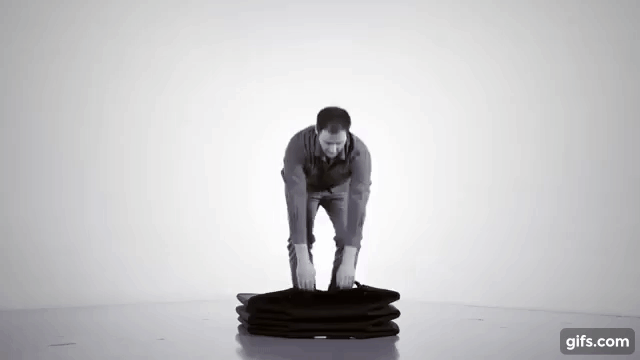When the Taliban ask for your hand in marriage
Khatira was born in the last year of the Taliban’s first round of rule over Afghanistan.She was a journalist in the northern province of Kunduz when the Taliban reclaimed power in 2021.Khatira, 22, lost her job after the regime’s return. But her problems were just beginning. A 40-year-old local Taliban official, a relative of her mother’s, proposed to her. He had done so earlier but Khatira (not her real name) had said no.But this was a new era in Afghanistan, and not being able to work made her more vulnerable.She said her mother could not refuse his request, and she told him to come the next day and accept a flower from Khatira’s family — a traditional sign of engagement.Khatira said that she ran away from home that night and went to Kabul. After 22 days she reached Pakistan, far from her parents, sister and two brothers. After nine months out of Afghanistan, she fears for her future.“Because of my escape, the Taliban had beaten my family members, including my mother, and this was the darkest time of my life,” Khatira said via WhatsApp, speaking in Persian from northeastern Pakistan.“I lost everything under the rule of the Taliban and can’t even return to my country.”She said the official sent her messages before she left the country saying: I proposed to you in the Republic era and you did not accept, but now it is our turn and you must accept the proposal.Khatira said forced marriages of Taliban officials with teenagers are not uncommon. A few months ago, a commander forcibly married a teenager in her family’s house in Kunduz.“I would rather kill myself than become the wife of a wild and ignorant Talib,” Khatira said.Fawzia Koofi, a former member of the Afghan parliament, said forced marriage and so-called underage marriage have greatly increased with the Taliban’s return. There are no official statistics but UNICEF also raised concern in November 2021 about the apparent rise.Koofi cited reports from all over the country that Taliban commanders have forcibly married educated girls.“Unfortunately, forced marriage is rooted in the bad customs and traditions of Afghanistan, too, and the main reason has been illiteracy and poverty,” Koofi said from London.“In addition to the forced marriage of young girls by the Taliban commanders, the despair that has been created in society” has led many families to force their daughters to marry, “even though they know that this is against Islam.”Koofi, who was once on the parliament’s Women and Human Rights Committee and who worked on laws protecting women, said that for two decades after the Taliban’s first regime, there was less pressure for forced marriage. She attributed that to changes in the law, public awareness, the increase in women working, and women’s rights advocacy.The Taliban’s return changed that.Under the Taliban, polygamy has increased among many of its commanders, leading Supreme Leader Haibatullah Akhundzada to issue an order. He said leaders and commanders must refrain from polygamy, and thus reduce the likelihood of corruption to pay for the expenses. Afghan weddings often involve hundreds of guests.Zohra, a 25-year-old woman with a degree in English literature from Kabul University, had an experience similar to Khatira. Zohra (not her real name) worked on a World Bank project before the Taliban takeover in August 2021 and wanted to earn a master’s.Zohra said she was the family’s sole breadwinner, and lost her job. The new regime cut off her father’s pension as a former government employee. Zohra said ever since a 50-year-old Taliban commander proposed to her, her family has been pressuring her to accept a different request — that of a 54-year-old Afghan man who lives in the Netherlands.“So far, I have not agreed to these requests,” she said via WhatsApp, speaking in Persian. “I will fight as long as I am alive.”Zohra said the commander saw her in the park (before women were banned from parks) and immediately came to her house and demanded her hand from her family. Since the proposal, she said, she has holed up at a relative’s house for three months, and her mother told this commander that Zohra had gone to France seeking asylum.“I am not going out of the house right now, lest the relatives of this Taliban commander see me.”Zohra said the proposal of the Dutch-Afghan man emerged after she became friends with the man’s niece, who lived near their house. She said the girl had a traffic accident and needed money, which her uncle sent from the Netherlands.She said this girl promised her uncle that Zohra would become his wife and finally she told Zohra — who refused.“Based on the situation in Afghanistan, my family insists that I should marry this man, who is more than 30 years older than me. I call him Uncle.”“I had just gotten rid of the Talib situation, and now I am caught up in another one. I am mentally tortured every day.”Zohra said that among her close relatives, a number of girls — barred from studying and working — have been forced by their fam


Khatira was born in the last year of the Taliban’s first round of rule over Afghanistan.
She was a journalist in the northern province of Kunduz when the Taliban reclaimed power in 2021.
Khatira, 22, lost her job after the regime’s return. But her problems were just beginning. A 40-year-old local Taliban official, a relative of her mother’s, proposed to her. He had done so earlier but Khatira (not her real name) had said no.
But this was a new era in Afghanistan, and not being able to work made her more vulnerable.
She said her mother could not refuse his request, and she told him to come the next day and accept a flower from Khatira’s family — a traditional sign of engagement.
Khatira said that she ran away from home that night and went to Kabul. After 22 days she reached Pakistan, far from her parents, sister and two brothers. After nine months out of Afghanistan, she fears for her future.
“Because of my escape, the Taliban had beaten my family members, including my mother, and this was the darkest time of my life,” Khatira said via WhatsApp, speaking in Persian from northeastern Pakistan.
“I lost everything under the rule of the Taliban and can’t even return to my country.”
She said the official sent her messages before she left the country saying: I proposed to you in the Republic era and you did not accept, but now it is our turn and you must accept the proposal.
Khatira said forced marriages of Taliban officials with teenagers are not uncommon. A few months ago, a commander forcibly married a teenager in her family’s house in Kunduz.
“I would rather kill myself than become the wife of a wild and ignorant Talib,” Khatira said.
Fawzia Koofi, a former member of the Afghan parliament, said forced marriage and so-called underage marriage have greatly increased with the Taliban’s return. There are no official statistics but UNICEF also raised concern in November 2021 about the apparent rise.
Koofi cited reports from all over the country that Taliban commanders have forcibly married educated girls.
“Unfortunately, forced marriage is rooted in the bad customs and traditions of Afghanistan, too, and the main reason has been illiteracy and poverty,” Koofi said from London.
“In addition to the forced marriage of young girls by the Taliban commanders, the despair that has been created in society” has led many families to force their daughters to marry, “even though they know that this is against Islam.”
Koofi, who was once on the parliament’s Women and Human Rights Committee and who worked on laws protecting women, said that for two decades after the Taliban’s first regime, there was less pressure for forced marriage. She attributed that to changes in the law, public awareness, the increase in women working, and women’s rights advocacy.
The Taliban’s return changed that.
Under the Taliban, polygamy has increased among many of its commanders, leading Supreme Leader Haibatullah Akhundzada to issue an order. He said leaders and commanders must refrain from polygamy, and thus reduce the likelihood of corruption to pay for the expenses. Afghan weddings often involve hundreds of guests.
Zohra, a 25-year-old woman with a degree in English literature from Kabul University, had an experience similar to Khatira.
Zohra (not her real name) worked on a World Bank project before the Taliban takeover in August 2021 and wanted to earn a master’s.
Zohra said she was the family’s sole breadwinner, and lost her job. The new regime cut off her father’s pension as a former government employee.
Zohra said ever since a 50-year-old Taliban commander proposed to her, her family has been pressuring her to accept a different request — that of a 54-year-old Afghan man who lives in the Netherlands.
“So far, I have not agreed to these requests,” she said via WhatsApp, speaking in Persian. “I will fight as long as I am alive.”
Zohra said the commander saw her in the park (before women were banned from parks) and immediately came to her house and demanded her hand from her family. Since the proposal, she said, she has holed up at a relative’s house for three months, and her mother told this commander that Zohra had gone to France seeking asylum.
“I am not going out of the house right now, lest the relatives of this Taliban commander see me.”
Zohra said the proposal of the Dutch-Afghan man emerged after she became friends with the man’s niece, who lived near their house. She said the girl had a traffic accident and needed money, which her uncle sent from the Netherlands.
She said this girl promised her uncle that Zohra would become his wife and finally she told Zohra — who refused.
“Based on the situation in Afghanistan, my family insists that I should marry this man, who is more than 30 years older than me. I call him Uncle.”
“I had just gotten rid of the Talib situation, and now I am caught up in another one. I am mentally tortured every day.”
Zohra said that among her close relatives, a number of girls — barred from studying and working — have been forced by their families to marry much older men.
“There is no hope of changing the situation, except a miracle from God.”
It has been more than a year since the Taliban prevented girls from going to secondary school, a ban that seems to have significantly increased the number of forced underage marriages and marriages with large age differences.
Preet Kaur Gill, a British MP and Opposition critic for international development who six months ago visited Afghanistan, criticized restrictions on women, including forced marriage.
“The Taliban’s recent decisions to ban female students from university and then women working deprives half the population of both their future and fundamental rights,” Kaur Gill told the Star from London.
Lina Rozbih, a well-known writer and journalist, said the Taliban use their restrictions as a tactic to gain diplomatic recognition and other demands. Speaking from Washington, Rozbih said forced marriage is a consequence of the rights restrictions, and also of the economic crisis and its pressures on families.
Rozbih added that Islam has clearly stated that a marriage in which the woman and the man are not happy in their hearts is invalid.
“The psychological effects of these types of marriages, especially if an underage girl is married to an older man, are depression and various mental pressures, which sometimes even lead to women’s suicide.”
Marjan Sadat is a Toronto-based general assignment reporter for the Star. Reach her via email: msadat@thestar.ca


















:quality(85):upscale()/2024/12/02/919/n/1922398/2b4b75f6674e20edcc99c3.42112799_.jpg)
:quality(85):upscale()/2023/10/20/771/n/1922283/f8d8bd596532b936709313.07127236_.jpg)
